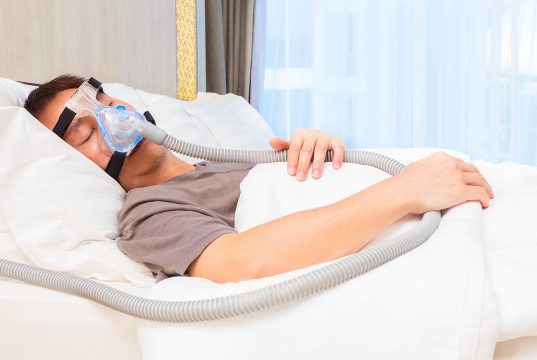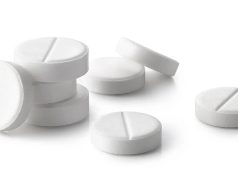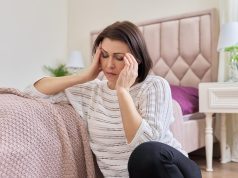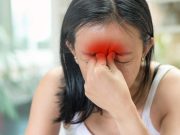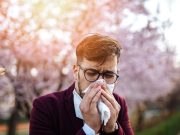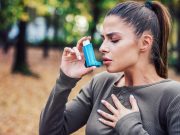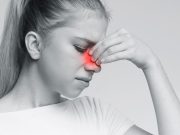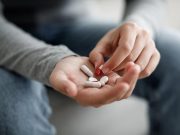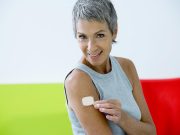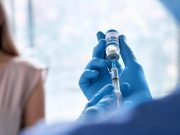Women Have Higher Odds of Chronic Rhinosinusitis Without Nasal Polyps
In a possible age-dependent trend, female participants 60 years or older had lower chronic rhinosinusitis prevalence
Non-Celiac Gluten/Wheat Sensitivity Self-Reported by 10.3 Percent
Women more often have self-reported NCGWS; those who self-report NCGWS more likely to have anxiety, depression, IBS
Higher Oxidative Balance Score Linked to Increased Odds of Allergic Rhinitis
In fully adjusted models, each unit increase in total OBS linked to 2 percent higher odds of allergic rhinitis
Social Determinants of Health Independent Risk Factors for Asthma
5.5 percent increase seen in asthma risk per SDoH index unit in unadjusted models, which remained significant after adjustment
Trauma Exposure, Traumatic Stress Common in Adolescents
High traumatic stress symptoms more common in older, female, Hispanic youth and in those with prior mental health diagnoses
FDA Approves Tezspire for Chronic Rhinosinusitis With Nasal Polyps
Approval is for add-on maintenance treatment in adults and pediatric patients ages 12 years and older
Antidepressants Vary Significantly in Cardiometabolic Effects
Clinically significant differences between antidepressants in terms of metabolic and hemodynamic effects
Potential Mental Health Advantages Found for Transdermal Versus Oral Hormone Therapy
Postmenopausal women on transdermal HT experienced lower incidence of anxiety and depression compared with those receiving oral HT
COVID Vaccine Before ICI Initiation Tied to Increased Survival in Patients With Cancer
SARS-CoV-2 mRNA vaccination within 100 days of ICI initiation was associated with increased overall survival in patients with NSCLC or metastatic melanoma
Menopause Tied to More Symptoms of Dry Eye Disease
History of autoimmune disease, smoking also tied to increased risk for dry eye disease


